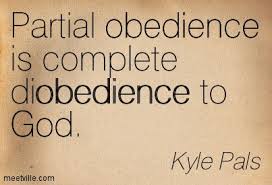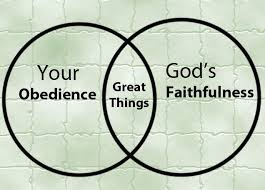A time for reflection
The week before Easter is designated as Holy Week. We join Jesus as He journeys to the Cross. We experience His “human nature”, up close and personal. The Gospel writers invite us to listen in on the conversations and vicariously join the activities that will ultimately end on Good Friday on a cross.
Hopefully this week, we will engage in activities that expand our understanding of the sacrifice and suffering that Jesus experienced (Is. 53:5). It is also a time in which we can examine our obedience in following God’s will. Are we willing to sacrifice our life on the cross that lay before us? What does the Cross mean to me?
The Cross and I
What does the Cross mean to me? Is it an object on which Christ was crucified? Or is it a piece of jewelry that you wear? Our view of the Cross is critical in that it establishes the basis of our Christian belief and personal walk of faith.
In the routine of daily living, we often forget Christ’s work of grace on the Cross. Unfortunately, some believers are only superficially drawn to the Cross. We give attention to it only during the sacrament of communion or at Easter. It is critical that we clearly define the Cross’ significance so that we might re-engage its purpose and power in our life.
At the Cross
Christian doctrine is founded on “the Cross.” Our belief about sin and salvation begin and end at the Cross (Rom. 3:23; 6:23). Our identity as children and heirs of God are established by our knowledge of what Christ accomplished on the Cross (Eph. 1:7; Rom. 8:17).
To Jesus Christ, the Cross signified lordship and commitment to Him. He told those who would follow Him that unless they were willing to bear His cross, they could not be His disciple (Luke 14:27). Christ has not altered His requirement for discipleship in the twenty-first century. The Cross demands commitment.
To Paul and other New Testament writers, the Cross represented the Good News (Gospel) of Jesus Christ. This gospel was to be clearly articulated to those identified in the Great Commission (Matt. 28:19-20). Jesus Christ died for sin, He rose from the dead, and “whosoever believeth in Him” shall have everlasting life. The gospel message remains the same in the twenty-first century. The Cross is salvation.
To Christians, the Cross recounts God’s extraordinary act of love. “Behold the Lamb of God who takes away the sin of the world” (John 1:29). George Matherson penned in his hymn these words:
O Love that will not let me go,
I rest my weary soul in thee;
I give thee back the life I owe,
That in thine ocean depths its flow
May richer, fuller be.
God’s plan of salvation did not come as an “after thought” but was formed in eternity (Eph. 1:4-7). Before the Fall, God set in motion His plan of salvation to return beloved man to Himself.
Return to the Cross
Jesus was the decided Victor on Resurrection Sunday. He disarmed and shamed Satan by His victory over death and over sin (Heb. 2:14-17). Knowledge of this strengthens our faith and confidence in Him.
As believers in Christ, let us reverence the Cross, not as a material object seen in isolation, but as the instrument of Christ’s triumph and love (Col. 2:13-15).
Return to the Cross and Christ’s life-transforming love. Re-discover its power that will never pass away.
Jesus, keep me near the cross
There’s a precious fountain
Free to all a healing stream
Flows from Calvary’s mountain
In the Cross,
In the Cross,
Be my glory ever,
‘Til my raptured soul shall find
Rest beyond the river.
Have a blessed Easter. Hallelujah, He is Risen!








